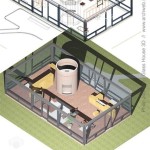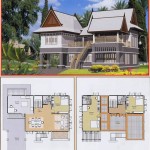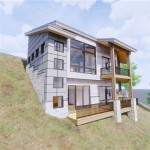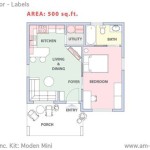Essential Aspects of Tiny House Trailer Floor Plans
Designing the floor plan for your tiny house trailer is a crucial step in creating a comfortable and functional living space. These plans determine the layout of your home, the placement of windows and doors, and the overall flow of the space. Carefully consider the following essential aspects to ensure an efficient and enjoyable living experience in your tiny abode.
Space Planning
Maximize every inch of space in your tiny house trailer by carefully allocating each area. Determine the necessary rooms and their approximate sizes, considering both your current and future needs. Divide the space into zones for sleeping, cooking, living, and storage to create a well-organized layout.
Multi-Purpose Spaces
In a small space, it's essential to maximize functionality. Design multi-purpose areas that serve multiple purposes. For example, a loft bed can double as storage space, while a dining table can also be used as a workspace. Consider foldable or retractable furniture to optimize space utilization.
Natural Light and Ventilation
Ensure adequate natural light in your tiny house trailer by strategically placing windows. Ample sunlight will not only brighten the space but also reduce energy consumption. Additionally, incorporate ventilation to maintain good air quality. Windows, skylights, and fans can help regulate airflow and prevent moisture buildup.
Storage Solutions
Storage is crucial in a tiny house trailer. Utilize every nook and cranny for storage, such as under beds, stairs, and the ceiling. Consider built-in cabinets, shelves, and drawers to keep your belongings organized and easily accessible.
Electrical and Plumbing Systems
Plan the electrical and plumbing systems carefully to ensure the functional operation of your tiny house trailer. Determine the location of outlets, switches, and light fixtures. Consider the placement of water lines, drains, and plumbing fixtures, ensuring they do not interfere with the layout.
Legal Requirements
Check local building codes and regulations before finalizing your floor plan. Some areas may have specific requirements for tiny houses or trailers, such as minimum square footage, ceiling height, and window sizes. Ensure your plan complies with these regulations to avoid any legal issues.
Professional Help
Consider consulting with an architect or interior designer to create a professional floor plan. They can assist with space planning, maximizing storage, and ensuring the overall functionality and aesthetics of your tiny house trailer. Their expertise can save you time and potential challenges.
By carefully considering these essential aspects, you can design a tiny house trailer floor plan that meets your unique needs and creates a comfortable and efficient living space. Remember to prioritize functionality, natural light, and storage solutions to make the most of your small space.

Custom Plans Elevations Now Available Tiny House Basics

Plans Purchase Healthy Homes

Tiny House Floor Plans 32 Home On Wheels Design

Tiny House Floor Plans 32 Long Home On Wheels Design

Show Model Bungalow Cottage Floor Plans Tiny House Small

Tiny House Plans The Project

Tiny Home Floor Plans Trailer Google Search House

Quartz Tiny House Free Plans Ana White

Tiny House Plans 24 X 8 6 13 Diy Camper Trailer Project With Loft

Guide To Building A Gooseneck Tiny House And Fifth Wheel Homes The Life








